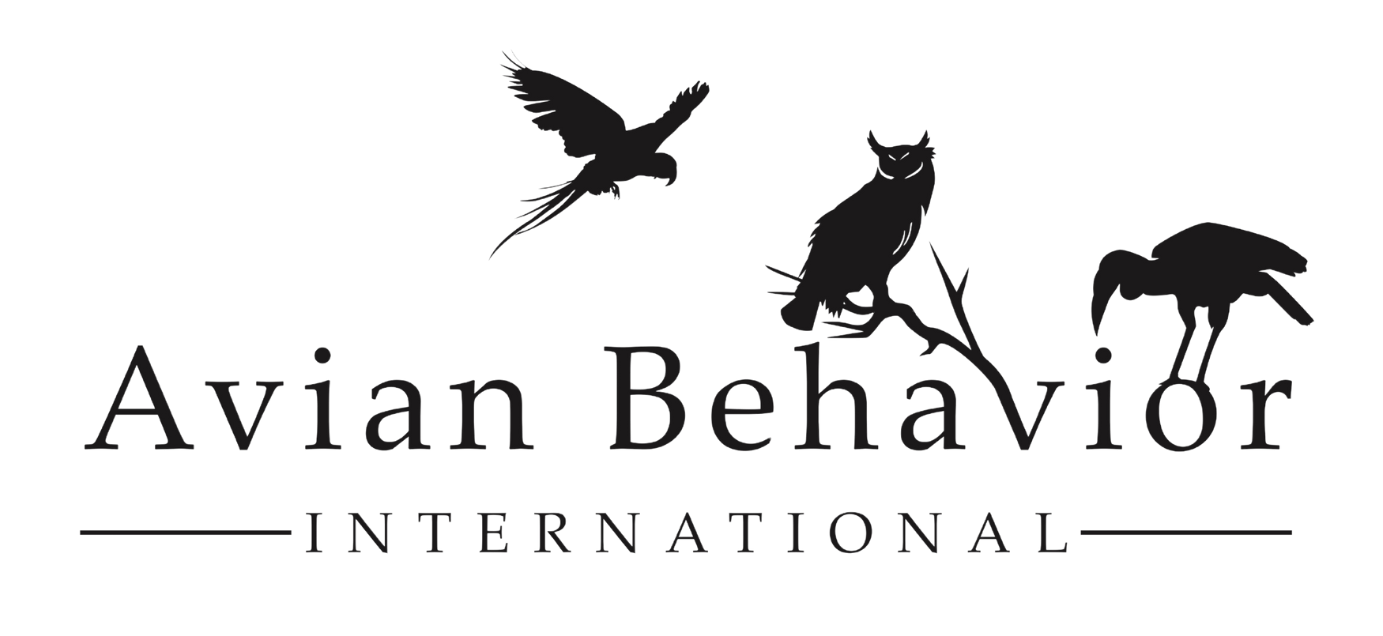2024 AvOCET Speakers
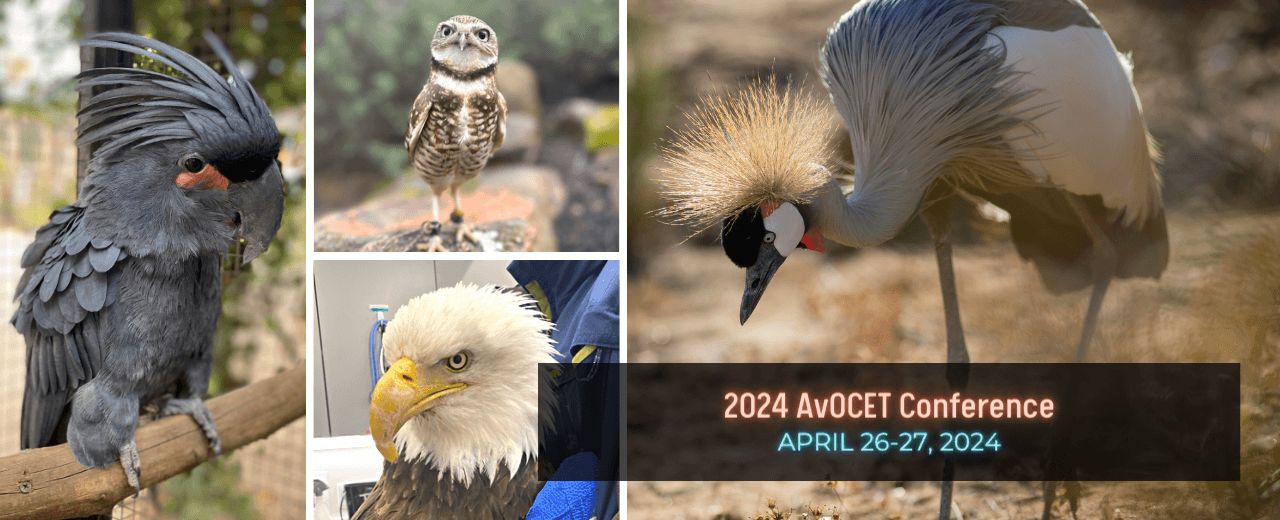
About AvOCET
Held by Avian Behavior International, AvOCET 2024 will be a virtual gathering space for bird behavior, training, education, and conservation enthusiasts. With internationally featured renowned speakers, paper submissions, panel discussions, and breakout rooms, the conference is designed to foster challenging ideas and thoughtful discussion, give attendees access to incredible minds in academia and animal care, and keep our community engaged with and feeling inspired by the latest work in the field and laboratory
Speakers
Hillary Hankey
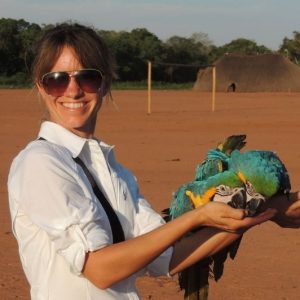 Owner and founder of Avian Behavior International and the Avian Behavior Lab, Hillary Hankey is a bird behavior and training expert based in Southern California. With a strong background in free flight training and companion parrot behavior consulting, she combines her love of adventure and understanding of animal behavior with a strong desire to connect humans and animals with complex topics such as nuanced education programs. Hillary has worked for and consulted with zoos, education organizations, and leadership programs and continues to educate through her podcast and online eduction program, The Avian Behavior Lab. For more about Hillary, you can read her story here.
Owner and founder of Avian Behavior International and the Avian Behavior Lab, Hillary Hankey is a bird behavior and training expert based in Southern California. With a strong background in free flight training and companion parrot behavior consulting, she combines her love of adventure and understanding of animal behavior with a strong desire to connect humans and animals with complex topics such as nuanced education programs. Hillary has worked for and consulted with zoos, education organizations, and leadership programs and continues to educate through her podcast and online eduction program, The Avian Behavior Lab. For more about Hillary, you can read her story here.
Topics: How to Make Cost-Benefit Analyses for Challenging Training Decisions
As the science of bird behavior, training, and husbandry progresses, we as a community and as individual practitioners have to make critical assessments about what is best for the birds in our care based on the role that suits them best as a species with their unique learning history. With the amount of information available to us, democratized through social media and institutionalized and even regulated through mission statements, best practice guidelines, position statements, and in extreme cases, regulatory policy, it is important more than ever to understand how we can continue to provide humane, evidence-based practices that best suit the individual in front of us and communicate this level of nuance on a broader scale. This presentation seeks to explore how we can counter daily decisions and even controversial topics with the best information possible.
Barbara Heidenreich
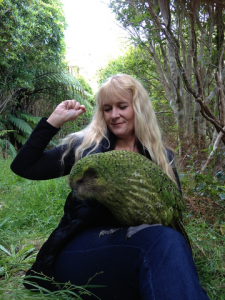 Barbara Heidenreich is an animal training consultant specializing in exotic animals. She consults worldwide working with zoos, universities, veterinary professionals, and conservation projects. She has worked onsite with over 80 facilities in 27 countries. She is an adjunct instructor at Texas A & M University. She has authored two books and contributed to four veterinary textbooks. She is a co-author of two Fear Free Avian Certification Courses. Much of her work focuses on training exotic species to cooperate in medical care. She operates the online education program AnimalTrainingFundamentals.com. This virtual learning program features award winning courses, tracks to guide professional development, verifiable badges to share and prove course completion, community, and more. Barbara is an advisor for the Animal Training Working Group and the Parrot Taxon Advisory Group for the European Association of Zoos and Aquariums. She has provided her expertise to conservation projects The Kakapo Recovery Program and The Borneo Orangutan Survival Foundation. She has a Bachelor of Science in zoology and has begun the journey towards a Master of Science in applied behavior analysis. Her goal is to leave behind a legacy of kindness to animals by sharing her expertise.
Barbara Heidenreich is an animal training consultant specializing in exotic animals. She consults worldwide working with zoos, universities, veterinary professionals, and conservation projects. She has worked onsite with over 80 facilities in 27 countries. She is an adjunct instructor at Texas A & M University. She has authored two books and contributed to four veterinary textbooks. She is a co-author of two Fear Free Avian Certification Courses. Much of her work focuses on training exotic species to cooperate in medical care. She operates the online education program AnimalTrainingFundamentals.com. This virtual learning program features award winning courses, tracks to guide professional development, verifiable badges to share and prove course completion, community, and more. Barbara is an advisor for the Animal Training Working Group and the Parrot Taxon Advisory Group for the European Association of Zoos and Aquariums. She has provided her expertise to conservation projects The Kakapo Recovery Program and The Borneo Orangutan Survival Foundation. She has a Bachelor of Science in zoology and has begun the journey towards a Master of Science in applied behavior analysis. Her goal is to leave behind a legacy of kindness to animals by sharing her expertise.
Topic:
An Alternative, Efficient, and Powerful System for Training Complex Behaviors
Abstract:
Animal caregivers often have goals of teaching complex behaviors such as blood sampling, hand injections, voluntary hoof care, free flight and more. A traditional approach often focuses on a single shaping plan with the desired identified behavior as the final objective. The Precision Teaching System developed by Ogden Lindsley emphasizes establishing, analyzing, and measuring fluent “component” behaviors to attain “composite” behaviors. Component behaviors can be thought of as foundation skills or smaller behaviors required to accomplish a more complex or composite skill. When component behaviors are practiced and reinforced, they can become more automatic and fluent, leading to smoother execution of composite behaviors. Additionally, strengthening component behaviors can contribute to the generalization and transfer of skills. When animals become proficient in performing individual components, they can more easily apply those skills to a variety of situations and contexts, supporting the broader application of composite behaviors. By paying attention to and improving component behaviors, animal caregivers can enhance the performance and development of composite behaviors. Teaching fluent component behaviors makes it possible for new composite skills to emerge quickly, without intentional prior training of that skill. Animals can be better prepared for a lifetime of learning many complex behaviors with what might be described as beginning with training foundation skills to fluency. This presentation will explore this alternative approach and its many benefits to training complex behaviors.
Sean Will & Maasa Nishimuta
Topic:
You Got It: Incorporating function-based training and degrees of freedom in modern animal training
Abstract:
This presentation will present two concepts that have been recently applied to the training of domestic and exotic animals. Applying these concepts to training programs can ensure the needs of our animal learners are met and our training goals attained efficiently. Function-based programs have been a cornerstone of effective interventions in behavior analysis for decades. Function-based programs identify the consequences desired by our learners and use them during training. During this presentation, we will discuss how understanding why our animals do what they do can improve our training and how to ask our animals what they are after. This presentation will also demonstrate how degrees of freedom, or the number of ways our animals have to obtain something they desire, can affect our learner’s experiences during training or possibly coerce them into participating in training. Together, these two recent additions to animal training have the potential to improve our training and communication with our animal learners, as well as improve their welfare and experiences during training!
Lee Stone
 Lee is the Operations Manager and the South East Queensland Avian Behaviour and Training consultant for Parrot Life Behaviour and Training, a parrot-specific behaviour consultancy based in Australia and New Zealand.
Lee is the Operations Manager and the South East Queensland Avian Behaviour and Training consultant for Parrot Life Behaviour and Training, a parrot-specific behaviour consultancy based in Australia and New Zealand.
Lee comes from a background in dog training and behaviour consulting. She started her behaviour journey in 2010, working with her mentors for 4 years before moving to the Pilbara region of Western Australia and starting her own small dog training business offering group classes, behaviour consults and educational programs.
In 2016 Lee added an Eclectus parrot to her growing menagerie of animals, and quickly became hooked. This naturally led her down a path to researching and learning all she could about parrot behaviour, training and enrichment. During this time of nerding out on all things parrot she met the team at Parrot Life and has not looked back since!
In 2018 Lee packed up and left Western Australia and moved home to Brisbane where she primarily works with parrots.
In the past 4 years, Lee’s flock has grown from one to five parrots (although two are only temporary residents), her flock now includes her Eclectus, three Macaws and one Caique (Ky-eek). She also has two, long-suffering, senior dogs named Keira and Phoenix.
Topic:
The Importance of Integrative Behaviour Care for Feather Destructive Behaviour Cases
Abstract:
Feather destructive behaviour represents a significant challenge in avian welfare, often stemming from complex interactions between medical, environmental, and behavioural factors. This behaviour not only reflects underlying concerns but also exacerbates the decrease in the quality of life for the parrot and adds emotional strain to their human caregivers. Given the multifaceted nature of the triggers for this behaviour, resolving it can often be challenging. In this presentation, I aim to underscore the importance of a multidisciplinary approach in developing effective strategies for the resolution and prevention of Feather Destructive Behaviour. By fostering collaboration between animal behaviour consultants, veterinarians, and veterinary behaviourists, we can increase rates of successful resolution, achieve those successful outcomes faster, and in doing so, provide relief to both captive parrots and their caregivers.
Joe Whitehead
 Joe Whitehead is the Klingsburg Aviary Coordinator at Shaver’s Creek Environmental Center (Penn State University), where he cares for the resident wildlife, supports and coaches their emerging professionals, and helps create meaningful experiences for the many guests who visit the center. A lifelong lover of birds, Joe has spent most of his career studying and working alongside a variety of species both in the wild and in his care.
Joe Whitehead is the Klingsburg Aviary Coordinator at Shaver’s Creek Environmental Center (Penn State University), where he cares for the resident wildlife, supports and coaches their emerging professionals, and helps create meaningful experiences for the many guests who visit the center. A lifelong lover of birds, Joe has spent most of his career studying and working alongside a variety of species both in the wild and in his care.
Topic: Exchanging knOWLedge: Sharing Thoughts and Experiences Working with Rehabilitated, Parent-reared Owls in an Education Setting
In recent decades, avian care industry standards of practice have evolved, and the ways species are cared for and managed have objectively improved. Throughout this transition, we have observed a specific focus of industry discussion on owls, their welfare, and their suitability as educational ambassadors under human care. As an experienced team working with rehabilitated, parent-reared owls at Shaver’s Creek Environmental Center, we are adding our perspective to the conversation. This presentation will focus on how our owls have been successfully incorporated into all aspects of our Program, how we have tailored our Program to better support these individuals, and lessons we have learned along the way. The intent of this presentation is to share perspectives and hopefully encourage more conversations around our collective experiences to help foster community and improve the welfare of our respective ambassadors.
Annette Pederson
 Annette started her 4-year education as a Zookeeper in 1988 & in 1989 she was hired as a trainee at Copenhagen Zoo where she completed the practical part of her education. During this time, Annette got the opportunity to work with all kinds of species in the Zoo.
Annette started her 4-year education as a Zookeeper in 1988 & in 1989 she was hired as a trainee at Copenhagen Zoo where she completed the practical part of her education. During this time, Annette got the opportunity to work with all kinds of species in the Zoo.
When Annette finished her education in 1992, she then got a position at the marine mammal section working with Harbour Seals and California Sea lions and additionally alongside animals like penguins, Malayan tapirs and babirusa … to name a few.
From 1993-2008 Annette attended all seminars, courses, and conferences regarding training that she could possibly find and/or get financial support for. Including a field trip in 1998 to the US visiting Brookfield Zoo, Shedd Aquarium, and Sea World Orlando. That trip changed Annette’s life!
In 2008 Annette moved to the Elephant section working with Elephants that had just moved from free contact into PC. At the same time, she got the position as Husbandry Training Coordinator.
Since 2008 Annette’s job has been to develop slash expand the training skills of the keepers at Copenhagen Zoo, as well as daily problem solving and behavior management with a variety of species and challenges.
Since 2009 she has additionally helped develop the Danish Association of Zoos and Aquariums (DAZA) animal training course and serves on the European Association of Zoos and Aquariums (EAZA) as Chair for the Animal Training Working Group and a member of the Animal Welfare Working group. Annette is also an instructor for the EAZA animal training courses under the EAZA Academy.
Further commitments include serving on the board of the Animal Behavior Management Alliance (ABMA) between 2014-2016 & today representing ABMA as an EU liaison working towards other European ABMA conference in 2020!
Topic:
Unmasking the Hidden Drivers: Understanding Superimposition in Behavior Interventions to Improve Animal Welfare
Abstract:
Lauren McGough
 Lauren McGough, a licensed falconer since age 14, specializes in the unique branch of eagle falconry, particularly with golden eagles. Graduating from the University of Oklahoma with dual degrees in Zoology and International Studies, she immersed herself in the European tradition of eagle falconry during a two-year exchange program in the United Kingdom.
Lauren McGough, a licensed falconer since age 14, specializes in the unique branch of eagle falconry, particularly with golden eagles. Graduating from the University of Oklahoma with dual degrees in Zoology and International Studies, she immersed herself in the European tradition of eagle falconry during a two-year exchange program in the United Kingdom.
As a 2009 Fulbright Scholar to Mongolia, Lauren apprenticed with local eagle masters, training eagles for fox hunting off horseback. Her passion for Kazakh eagle culture led her to earn a PhD in Social Anthropology from the University of St Andrews in Scotland.
Topic:
Bringing Together Traditional Ecological Knowledge and Modern Training Techniques to Build the Best Relationship with Golden Eagles
Description:
While doing fieldwork in Mongolia for her PhD in Anthropology, Lauren learned the ingenious ways that Kazakh berkutchi manage their golden eagles. Many of these techniques she still applies to her rehab and falconry eagles in the US, along with modern innovations in avian training. She’ll discuss weight management, training and behavior of golden eagles through these different lenses and how the best results are achieved when we consider our birds’ natural history and avoid a one-size-fits-all approach.
Gail Buhl
Gail Buhl earned her Bachelor of Science of Biology degree from the College of Biological Sciences, University of Minnesota. She has worked and volunteered in wildlife rehabilitation and the Ambassador Animal world for over 30 years. Her professional career has focused on presenting and training Animal Ambassadors for on the glove and in-flight programs. Her goal of that Environmental Education is to help the public become environmentally literate in an engaging way.
Gail is a very active instructor, teaching continuing education for wildlife rehabilitators and Ambassador Animal trainers at the state and national level and has presented all over the country. She has coordinated and presented workshops on Ambassador Animals, focusing on mentoring nature center staff and wildlife rehabilitators.
She has state and federal wildlife rehabilitation permits and is an “equal opportunity” wildlife rehabilitator. Currently, she is serving on the Wildlife Rehabilitation Advisory Council (WRAC) to the Minnesota Department of Natural Resources. She is also involved in one-to-one mentoring with organizations and individuals in rehabilitation and in animal training.
Gail has been a team member and supervised four very diverse collections and programs. She is one of the Editors for “A Guide for the Care and Use of Program Animals” 2nd Edition, 2018, published by the National Wildlife Rehabilitators Association (NWRA).
Currently, Gail is the Partnership Coordinator for the Partners for Wildlife program at The Raptor Center at the College of Veterinary Medicine at the University of Minnesota.
Topic:
Quality of Life for Aging Ambassadors: How to Use Ethograms and Activity Budgets to Make Informed Choices
Abstract:
Emily Davenport
 After nearly two decades devoted to providing care to both companion animals and wildlife, Emily M. Davenport, CWR, RVT founded the Rocky Mountain Wildlife Alliance in 2017. She has been a veterinary professional for 2 decades, serving in multiple small animal and exotic practices. She is a Licensed Wildlife Rehabilitator with the state of Colorado and the United States Fish and Wildlife Service. She is also internationally certified in wildlife rehabilitation by the International Wildlife Rehabilitation Council—making her one of only 4 people in the state of Colorado with this designation.
After nearly two decades devoted to providing care to both companion animals and wildlife, Emily M. Davenport, CWR, RVT founded the Rocky Mountain Wildlife Alliance in 2017. She has been a veterinary professional for 2 decades, serving in multiple small animal and exotic practices. She is a Licensed Wildlife Rehabilitator with the state of Colorado and the United States Fish and Wildlife Service. She is also internationally certified in wildlife rehabilitation by the International Wildlife Rehabilitation Council—making her one of only 4 people in the state of Colorado with this designation.
Emily’s area of interest and expertise is raptors, with a background in the veterinary field and sound ecological practices, she has worked with raptors as small as Flammulated Owls and as large as California Condors.
Topic:
Collaborative Conservation
Abstract:
This presentation explores the historical challenges and evolving landscape of collaboration among wildlife professionals, emphasizing the critical need for unity in modern conservation efforts. Delving into the diverse array of wildlife professions, from rehabilitators and falconers to educators and biologists, it examines past barriers such as fragmented approaches, disciplinary boundaries, and competing interests. However, with a shift towards science-based practices and a deeper understanding of interconnected ecosystems, there is a growing recognition of the imperative to come together for collaborative conservation. By showcasing success stories, fostering interdisciplinary dialogue, and advocating for a culture of collaboration, this presentation aims to inspire wildlife professionals to unite, share expertise, and work collectively towards a sustainable future for wildlife and their habitats.
Stephanie Rosenbloom
 Stephanie received her B.S. in Chemistry from The Pennsylvania State University (2016) and her Ph.D. in Chemistry from Cornell University (2021). A lifelong parrot enthusiast, Stephanie aims to explore the intersection of organic chemistry and avian sciences and is thus particularly interested in psittacine nutrition. She is co-founder of Nerdy Bird Collective, where she applies her skills as a trained researcher to curate evidence-based resources for companion parrot owners and maintains her practice as a parrot behavior and nutrition consultant.
Stephanie received her B.S. in Chemistry from The Pennsylvania State University (2016) and her Ph.D. in Chemistry from Cornell University (2021). A lifelong parrot enthusiast, Stephanie aims to explore the intersection of organic chemistry and avian sciences and is thus particularly interested in psittacine nutrition. She is co-founder of Nerdy Bird Collective, where she applies her skills as a trained researcher to curate evidence-based resources for companion parrot owners and maintains her practice as a parrot behavior and nutrition consultant.
Topic:
“How the flock do I feed my parrot?”
Abstract:
Nutrition is a complex and vital aspect of parrot husbandry that significantly impacts the health and well-being of parrots under human care. Though most parrot owners and caretakers agree on the importance of a proper diet, the question of what constitutes a proper diet sparks substantial debate. In this seminar, Stephanie will present an overview of parrot diets and nutrition to explore the fundamental principles that guide how to feed our parrots. Covering a wide range of topics including nutritional requirements, the implications of wild feeding strategies in the diet of captive parrots, how to formulate a homemade diet, and misconceptions that may lead to nutritional imbalances, this seminar aims to equip parrot caretakers with the knowledge to make informed decisions and confidently navigate the intricacies of parrot diet selection and formulation.
Stephanie Ashley
 Stephanie Ashley has been working with birds for over 20 years. She has been a member of many different neotribes in the avian
Stephanie Ashley has been working with birds for over 20 years. She has been a member of many different neotribes in the avian
Topic: Addressing Neotribal Biases in Avian Care and Training
Avian care and training is a relatively small, specialized niche in the wide world of working with animals. Even so, we “bird people” are very diverse. We come from all different backgrounds and bring many different types of knowledge and skills to the table. Unfortunately, sometimes biases can form between different groups, or neotribes, of bird caretakers. Hard feelings and bad experiences between individuals can impact opinions and perceptions throughout our entire community. Becoming aware of these different biases is the first step to combating them. We are stronger united than we are divided, and our ability to set our differences aside and combine our resources can have a major positive impact on the welfare of the birds we care for.
